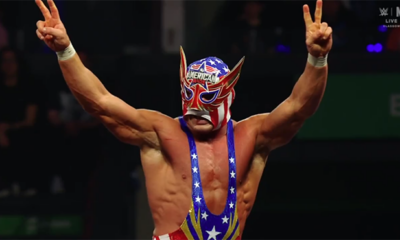
In May 2002, the World Wrestling Federation (WWF) underwent a major rebranding and emerged as World Wrestling Entertainment (WWE). This change was not a mere cosmetic alteration, but rather the result of a legal dispute with the World Wildlife Fund, an environmental organization also known by the initials WWF. This article delves into the reasons behind the name change and its impact on the wrestling organization’s identity.
The Legal Battle
The World Wildlife Fund, founded in 1961, is an international non-governmental organization dedicated to the preservation of wildlife and natural habitats. The organization had been using the abbreviation “WWF” long before the wrestling company. In 1994, Titan Sports, Inc., the parent company of the World Wrestling Federation, entered into a legal agreement with the World Wildlife Fund. This agreement stipulated that Titan Sports would limit its use of the WWF initials to avoid confusion with the environmental organization.
However, the World Wrestling Federation continued to use the abbreviation and even launched a website under the domain name wwf.com. This action led to the World Wildlife Fund suing Titan Sports for violating their agreement. In 2001, a UK court ruled in favor of the World Wildlife Fund, stating that the wrestling organization had indeed violated the 1994 agreement. As a result, the World Wrestling Federation was required to change its name.
The Birth of WWE
On May 5, 2002, the World Wrestling Federation officially announced its name change to World Wrestling Entertainment, or WWE. The new name was accompanied by a marketing campaign entitled “Get the ‘F’ Out,” which emphasized the removal of the “F” from WWF. Along with the new name, WWE introduced a new logo, replacing the iconic WWF logo with a more stylized and modern design.
Impact on the Brand
The name change from WWF to WWE marked a significant shift in the organization’s identity. It allowed WWE to distance itself from the legal dispute with the World Wildlife Fund and to establish a new brand that would be free from any potential confusion.
Despite the initial challenges, WWE has successfully rebranded itself and continued to thrive in the world of professional wrestling. The organization has expanded its programming, ventured into new markets, and developed a strong online presence through its streaming service, WWE Network.
The transition from WWF to WWE was more than just a name change; it represented a turning point in the history of the wrestling organization. The legal battle with the World Wildlife Fund forced the company to reevaluate its brand and adopt a new identity. Today, WWE stands as a testament to the organization’s resilience and adaptability, proving that even a challenging name change can be overcome with perseverance and strategic rebranding.














